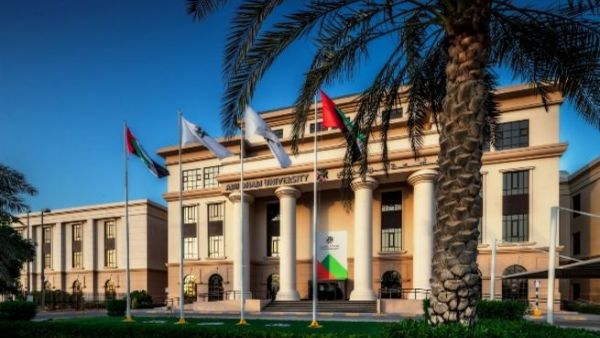Abu Dhabi University to launch the 1st International Conference of the CIB MENA on Sunday

Design, planning and construction of sustainable cities are some of the many topics that will be discussed by experts during the launch of Abu Dhabi University’s “1st International Conference of the CIB Middle East and North Africa Research Network” on Sunday, 14th of December at the Beach Rotana Hotel in Abu Dhabi. Titled “Smart, Sustainable and Healthy Cities”, the conference is organized in strategic collaboration with the “Environment Agency -Abu Dhabi”, “Tadweer” (The Center of Waste Management - Abu Dhabi), “Thompson Reuters” and in collaboration with the CIB- MENA Research Network. The three-day conference has received more than 130 abstract submissions by academics from universities all around the world, in topics that include: planning, management, building material and components, human comfort and health issues, ecology, waste management, energy and water efficiency and the economics of sustainability. The conference is also set to tackle the challenges that have emerged from the world’s constant retrofitting of existing building stock and infrastructure for the design and construction of new developments, and the need to involve and collaborate with experts in architecture, civil engineering, urban design, and landscape architecture.
Commenting on the importance of the conference, Dr. Nabil Ibrahim Chancellor of Abu Dhabi University explained that in light with the constant urban development that cities have been experiencing and is expected to continue for decades to come, decision makers are faced with many challenging decisions. “Building smart, sustainable, healthy cities that will endure the ever-growing wave of urbanization will require the involvement of multidisciplinary teams of designers, planners, architects, engineers, environmentalists, scientists, economists and various other experts. The conference will provide a great platform to shed light on the most successful global practices in building smart and sustainable cities. Experts participating will also focus on the trends, technologies and policies that have been implemented world-wide in this vital field,” added Dr. Ibrahim.
Ahmed Baharoon, Executive Director, Environmental Information, Science & Outreach Management at EAD stressed on the importance of building sustainable cities for a greener future, as the world faces limited natural resources, rising costs, and dangerous levels of emissions and pollution attributed to consumption. He said “Dense cities can provide opportunities for efficiency and technological innovations that would help reduce resource and energy consumption which should be also able to provide its population with proper living environment including access to open spaces, nature, and protected culture and heritage”.
Baharoon also stressed on the importance of achieving the visions set by the UAE wise leadership to provide our citizens and residents with a sustainable and brighter future, noting that CIB-MENA 2014 is a starting point from which we can plan, share ideas, challenge our thinking, and build positive momentum for a greener reality for our future generations.
On his part, Dr. Ahmad Okeil Professor of Architecture and Head of the conference’s organising committee pointed out that the conference attracted more than 130 abstract submissions from academics and experts from around the world. “The 1st International Conference of the CIB Middle East and North Africa Research Network will feature more than 50 research papers that were selected for presentation by a committee of academics and experts from various international universities and research centres. The initiative is also a great opportunity for our architecture students at Abu Dhabi University as they will benefit from the papers presented during the conference, especially since 20% of the abstract submissions for the conference were from postgraduate students from universities around the UAE”, concluded Dr. Okeil.
Background Information
Abu Dhabi University
The dream began with the Charter of Abu Dhabi University in the year 2000, After three years of planning, the university opened its doors in September 2003, to an entering class of 1,000 students on its two campuses in Abu Dhabi and Al Ain. Unlike other colleges and universities in the UAE, ADU undertook the measures necessary to ensure that all of the degree programs it would offer had secured accreditation from the Ministry of Higher Education and Scientific Research in advance of any students enrolling in them.
ADU offers a range of undergraduate and postgraduate degrees based upon the American model of higher education.







